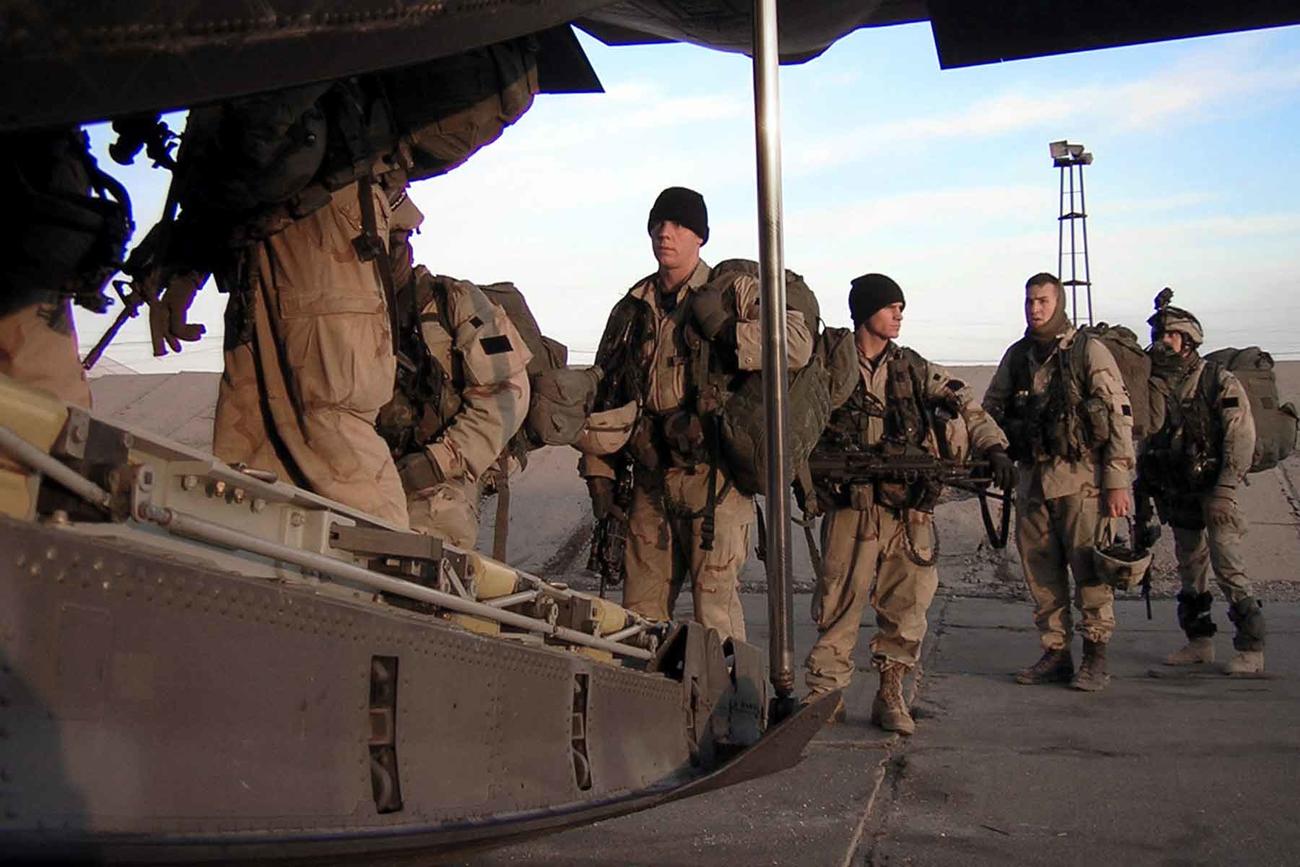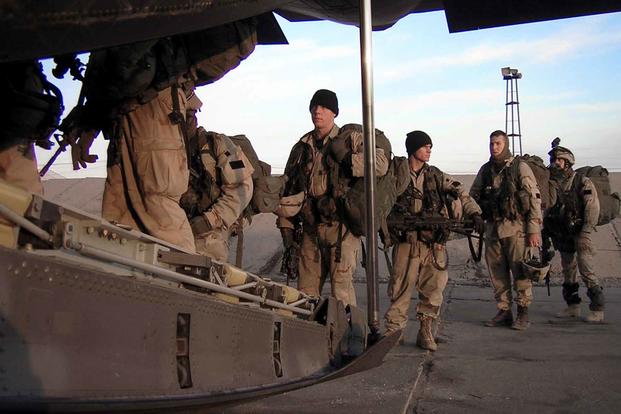

Veterans who served at Karshi-Khanabad Air Base in Uzbekistan after Sept. 11, 2001, and have a chronic illness that isn’t easily diagnosed are now eligible for expedited disability benefits from the Department of Veterans Affairs.
The VA announced Friday that those who served at the installation, known as K2, and have symptoms similar to Gulf War Illness, which the VA calls “medically unexplained chronic multisymptom illness,” have a presumptive condition that will make it easier for them to apply for disability compensation.
While K2 veterans already are eligible for health care benefits under the PACT Act, and those with health conditions related to burn pit exposure qualify for fast-tracked disability benefits, the announcement is the first for this population to receive a unique service-connected designation.
Read Next: Soldiers Hit with More Problems Accessing Education Benefits Amid Fall Enrollment Deadlines
“At VA, our goal is to provide every veteran who served at K2 with the care and benefits that they deserve for their service to our nation — and that’s what this effort is all about,” VA’s Under Secretary for Benefits Josh Jacobs said in a statement Friday.
According to the announcement, service at K2 from 2001 to 2005 also qualifies as a toxic exposure risk activity, or TERA, for contaminants such as jet fuel, volatile organic compounds, particulate matter, asbestos and lead-based paint, a designation that also eases the path toward benefits.
K2 veterans and advocates have pressed for wider recognition of exposures at K2 and related illnesses, saying the installation, a former Soviet base, was contaminated with a number of cancer-causing chemicals and agents, including enriched uranium.
A spokesman for the Stronghold Freedom Foundation, which represents K2 veterans, said the group was “encouraged” by the VA’s announcement and, while it didn’t include the organization’s concerns about radiation exposure from uranium, it was a step toward achieving benefits for all sickened by serving at the installation.
“All along, we’ve been looking at this as an incremental process. You take what you can get and then you move on. But it does provide a means for our veterans to be seen again [who] have been denied in the past. We’re very excited about that,” said retired Texas Air National Guard Lt. Col. Steve Nelson, the foundation’s government affairs director.
K2 was used as a logistics installation to support operations in Afghanistan from 2001 to 2005. Service members stationed there described polluted conditions at the base, such as “black gunk” that oozed up through the floorboards of their barracks and fine dust of unknown material that settled on surface areas.
Extensive reporting by McClatchy, The Associated Press and CBS found that the installation, also known as Camp Stronghold Freedom, was contaminated with missile propellant, solvents, fuel, lubricants, trace amounts of chemical weapons and uranium.
Data obtained by the AP shows the soil at K2 recorded uranium radiation levels up to 40,000 times higher than what would have been expected if it were natural uranium.
Many veterans who were assigned there have been diagnosed with various types of cancer, including brain, colon, thyroid and pancreatic cancers.
Rep. Mark Green, R-Tenn., a retired Army major who has been diagnosed with cancer twice whose illnesses have been tied to burn pit exposure, teamed with Rep. Stephen Lynch, D-Mass., to introduce a bill Thursday that would ensure that any type of cancer would be presumptively related to service at K2.
Green, a flight surgeon who deployed to Iraq and Afghanistan and passed through Karshi-Khanabad, said that it shouldn’t “take decades to determine a link between toxic exposure during military service and diseases like cancer.”
“We now know military leaders were supposed to communicate with K2 service members about health risks, but many claim no briefings ever took place,” Green said in a statement.
VA Press Secretary Terrence Hayes said Tuesday that many conditions connected to radiation exposure already have been designated as presumptive conditions related to environmental exposures under the PACT Act. For those illnesses that aren’t, however, the VA will consider claims on a case-by-case basis, he said.
“VA encourages any veterans who believe they have conditions related to radiation exposure to apply for compensation and health care benefits today, and we will do everything in our power to provide them with the care and benefits they deserve,” Hayes said in a statement to Military.com.
Hayes also said the VA is working with the Defense Department to determine additional exposures at K2 and with the Agency for Toxic Substances and Disease Registry, an agency under the Department of Health and Human Services, to survey the K2 population’s medical conditions. It also is reviewing its own health records and claims data to identify trends in K2 veterans to identify additional exposures.
According to the VA, 13,002 K2 veterans of roughly 16,000 are enrolled in VA health care, while 11,801 have at least one service-connected condition.
As part of Friday’s announcement, VA officials said they also plan to provide specific information and training to claims processors and examiners on K2 exposures and will add an extra layer of review to “ensure that all relevant information (including exposures) was taken into account.”
The VA encouraged all veterans who served at K2 to apply for VA care and benefits by visiting its website or calling 1-800-MYVA411.
“For the conditions that are not currently considered presumptive, we will work those claims on a case-by-case basis — using the rigorous process outlined in our announcement — and do everything in our power to get to ‘yes,'” Hayes said.
Related: Lawmakers Investigate Cancer Cluster of Veterans Who Served at ‘K2’ Base
